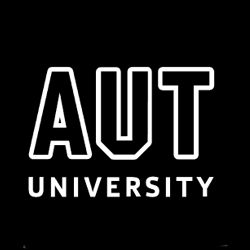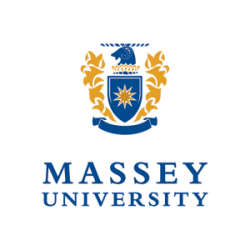
Taking the Lead, Strategic Management for e-Learning
Status
Completed: 12 September 2008
Project Details
A Ministry of Education funded project to learn how tertiary institutions are using e-learning practices and develop guidelines for tertiary education practitioners.
A collaboration of AUT University, Bay of Plenty Polytechnic, Manukau Institute of Technology, Massey University, New Zealand Tertiary College, NorthTec, The Open Polytechnic, Otago Polytechnic, TANZ, Te Whare Wānanga O Awanuiārangi, UCOL, University of Auckland, University of Canterbury, University of Otago, Whitireia Community Polytechnic, Wintec and Ako Aotearoa.
Aims:
The project aimed to:
- develop a set of resources and tools to assist institutional leaders to plan and manage their use of e-learning more strategically
- identify the issues of significance and express them as questions that leaders should be asking of their institutional strategy, policy and practice
- publish case studies illustrating a number of strategies used across the New Zealand tertiary education sector.
Methodology:
The methodology of the project featured:
- a series of interviews with tertiary sector representatives to clarify the strategic issues requiring attention and confirm the lack of strategic guidance available
- development of ethics protocols approved by Massey University to set the terms for gathering and publishing data on the institutional case studies.
Team

Andrew Higgins
Auckland University of Technology (AUT)
Tom Prebble
Massey UniversityKey Findings
Key 'strategy' questions for institutional leaders
- What are the medium and long-term strategic goals and objectives of your institution?
- How are these strategic goals reflected in your institution’s Learning and Teaching Plan?
- How are these strategic goals reflected in your institution’s more specific plans for e-Learning?
Key 'structure' questions for institutional leaders
- How should you organise and manage for e-Learning?
- More specifically, who should be responsible for what and how should their various efforts be integrated and led?
Key 'resourcing' questions for institutional leaders
- How should e-Learning be resourced within your organisation?
- What will it cost?
Key 'decision-making' questions for institutional leaders
- Who makes the decisions about which courses and programmes will use e-Learning?
- How they will do so?
Key 'collaborating and outsourcing' questions for institutional leaders
- Should you collaborate with other institutions or outsourcing a set of services or developing them in- house?
Key 'selecting technologies' questions for institutional leaders
- What is the problem this technology will solve? What sort of priority is it?
- Do our teachers/students wish to teach/study in this way? How do we know students will achieve their learning outcomes?
- Will we suffer if we simply don’t adopt it?
- What are the implications for staff workload?
- Will the technology open up new markets (geographic, demographic, subject) for us?
- Is it a cost-effective solution in terms of capital and recurrent costs?
- Is it a robust technical solution?
- What implications does this technology have for intellectual property?
Key Recommendations
- Institutional leaders should ask a series of questions of their strategies for e-learning to clarify the strategic issues requiring attention.
- They should draw on the project resources as a guide.
A full report prepared for Ako Aotearoa and the Ministry of Education by AH Higgins and TK Prebble.
(PDF, 479 KB, 68-pages).
- 30 September 2008
A report prepared for Ako Aotearoa and the Ministry of Education Andrew Higgins and Tom Prebble.
(PDF, 2.6 MB, 16-pages).
- 30 September 2008
A report prepared for Ako Aotearoa and the Ministry of Education Andrew Higgins and Tom Prebble.
(PDF, 229 KB, 2-pages).
- 30 September 2008
A two-page case study prepared for Ako Aotearoa and Ministry of Education.
(PDF, 78 KB, 2-pages).
- 30 September 2008
A two-page case study prepared for Ako Aotearoa and Ministry of Education.
(PDF, 82 KB, 2-pages).
- 30 September 2008
A two-page case study prepared for Ako Aotearoa and Ministry of Education.
(PDF, 62 KB, 2-pages).
- 30 September 2008
A two-page case study prepared for Ako Aotearoa and Ministry of Education.
(PDF, 78 KB, 2-pages).
- 30 September 2008
A two-page case study prepared for Ako Aotearoa and Ministry of Education.
(PDF, 78 KB, 2-pages).
- 30 September 2008
A two-page case study prepared for Ako Aotearoa and Ministry of Education.
(PDF, 67 KB, 2-pages).
- 30 September 2008
A two-page case study prepared for Ako Aotearoa and Ministry of Education.
(PDF, 67 KB, 2-pages).
- 30 September 2008
A two-page case study prepared for Ako Aotearoa and Ministry of Education.
(PDF, 217 KB, 2-pages).
- 30 September 2008
A two-page case study prepared for Ako Aotearoa and Ministry of Education.
(PDF, 65 KB, 2-pages).
- 30 September 2008
A three-page case study prepared for Ako Aotearoa and Ministry of Education.
(PDF, 67 KB, 3-pages).
- 30 September 2008
A three-page case study prepared for Ako Aotearoa and Ministry of Education.
(PDF, 70 KB, 3-pages).
- 30 September 2008
A two-page case study prepared for Ako Aotearoa and Ministry of Education.
(PDF, 64 KB, 2-pages).
- 30 September 2008
A three-page case study prepared for Ako Aotearoa and Ministry of Education.
(PDF, 70 KB, 3-pages).
- 30 September 2008
A two-page case study prepared for Ako Aotearoa and Ministry of Education.
(PDF, 64 KB, 2-pages).
- 30 September 2008
A three-page case study prepared for Ako Aotearoa and Ministry of Education.
(PDF, 70 KB, 3-pages).
- 30 September 2008
A two-page case study prepared for Ako Aotearoa and Ministry of Education.
(PDF, 66 KB, 2-pages).
- 30 September 2008